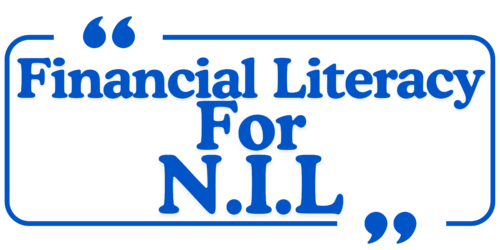As student-athletes enter the world of Name, Image, and Likeness (NIL) opportunities, they may experience a sudden influx of income from endorsements, sponsorships, and other ventures. While this newfound financial independence can be exciting, it often comes with its own set of challenges, particularly when family members start to ask for money. Learning to say no to these requests is a critical skill that can help student-athletes protect their financial future. This article will explore the importance of setting boundaries with family, the potential consequences of giving in to these requests, and strategies for handling these situations.
Understanding the Pressure
Family dynamics can be complex, and for many student-athletes, there may be an expectation to support their loved ones, especially if they come from modest backgrounds. Family members may feel entitled to a share of the student-athlete’s income, believing that they played a significant role in the athlete’s success. This can create pressure, leaving student-athletes feeling guilty or obligated to provide financial support.
The Importance of Setting Boundaries
Financial Stability: Saying no to family requests for money is essential for maintaining financial stability. Student-athletes should prioritize their financial health by budgeting their income, saving for emergencies, and planning for future expenses, including education and living costs. Providing financial support to family members can jeopardize these important goals.
Developing Independence: Learning to say no fosters independence and encourages student-athletes to manage their finances responsibly. This experience helps them understand the value of their hard work and teaches them to make sound financial decisions based on their needs and priorities.
Avoiding Resentment: Constantly giving in to family requests can lead to feelings of resentment and frustration. When student-athletes feel that their family members are taking advantage of their financial situation, it can strain relationships. Setting clear boundaries can help maintain healthy family dynamics and prevent feelings of obligation from overshadowing personal connections.
Teaching Financial Literacy: By saying no to family requests, student-athletes can emphasize the importance of financial literacy and self-sufficiency. Rather than providing monetary support, they can encourage family members to seek financial education and learn how to manage their own finances effectively.
Protecting Their Future: Student-athletes must consider their long-term goals and aspirations. Giving in to immediate requests for money can have lasting repercussions, potentially impacting their ability to invest in their future, whether that means furthering their education, pursuing professional opportunities, or saving for major life events.
Strategies for Saying No
Communicate Clearly: When approached with requests for money, it’s important to communicate openly and honestly. Student-athletes can express their feelings and explain their reasons for declining the request. A respectful conversation can help family members understand the student-athlete’s perspective.
Offer Alternatives: Instead of providing financial support, student-athletes can offer to help family members find resources or assistance programs that can aid them in their financial situations. This approach encourages independence and reinforces the idea that support can come in many forms.
Set Limits: If student-athletes choose to offer some support, it’s essential to set limits on the amount and frequency of assistance. By establishing clear boundaries, they can help manage expectations and avoid being overwhelmed by constant requests.
Stay Firm: It’s crucial to remain firm in the decision to say no, even if family members persist. Student-athletes should practice assertiveness and reinforce their boundaries to protect their financial interests.
Seek Support: Navigating family dynamics can be challenging. Seeking guidance from mentors, financial advisors, or trusted friends can provide student-athletes with the support they need to stand firm in their decisions.
Conclusion
Learning to say no to family requests for money is an essential skill for student-athletes entering the NIL landscape. By setting boundaries and prioritizing their financial stability, they can protect their hard-earned income while fostering healthy family relationships. Establishing clear communication and exploring alternative support options can help student-athletes navigate these situations with confidence. Ultimately, saying no today can pave the way for a more secure and independent financial future tomorrow.
Pat Brown, MBA
Financial Advisor and Former D1 Football Player
